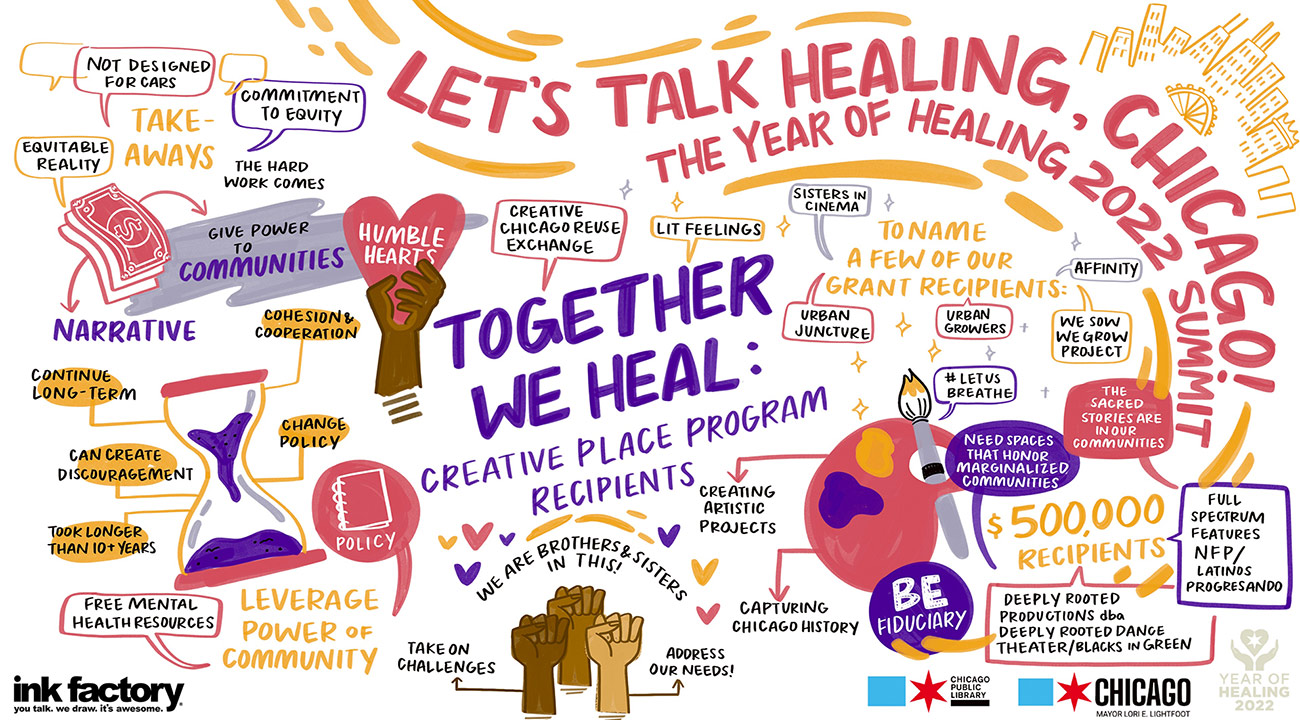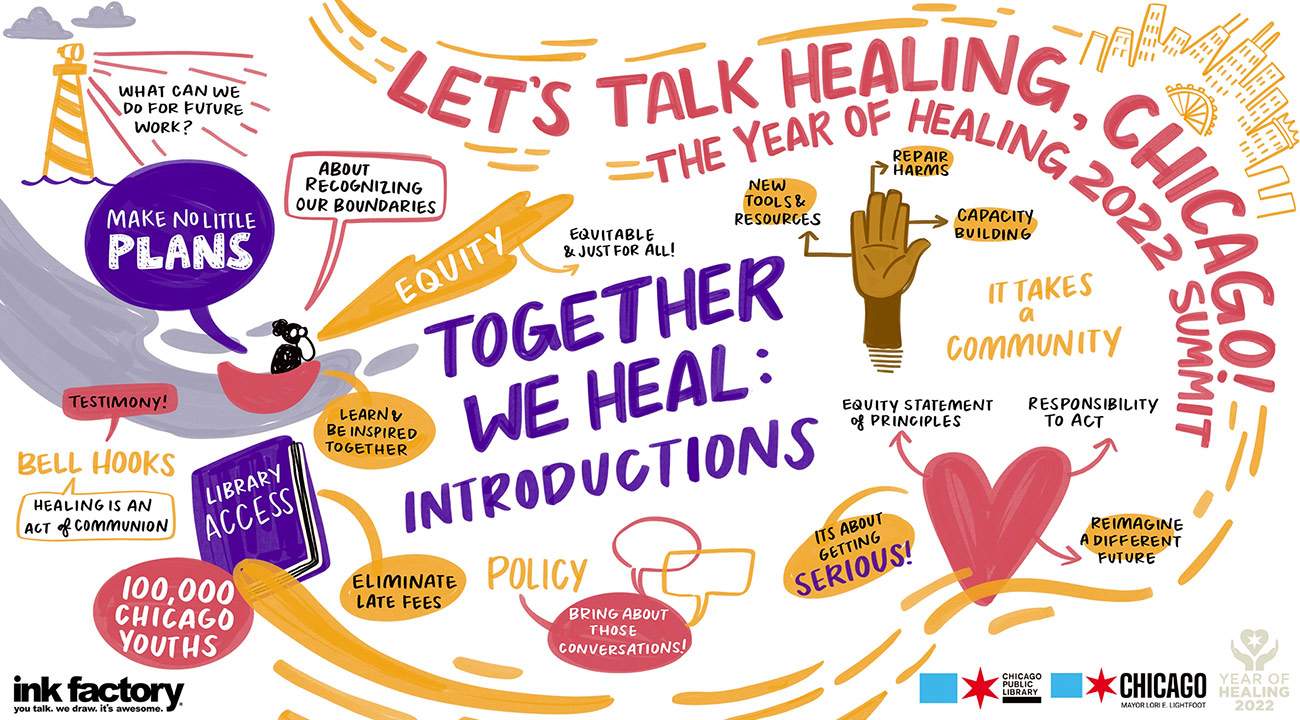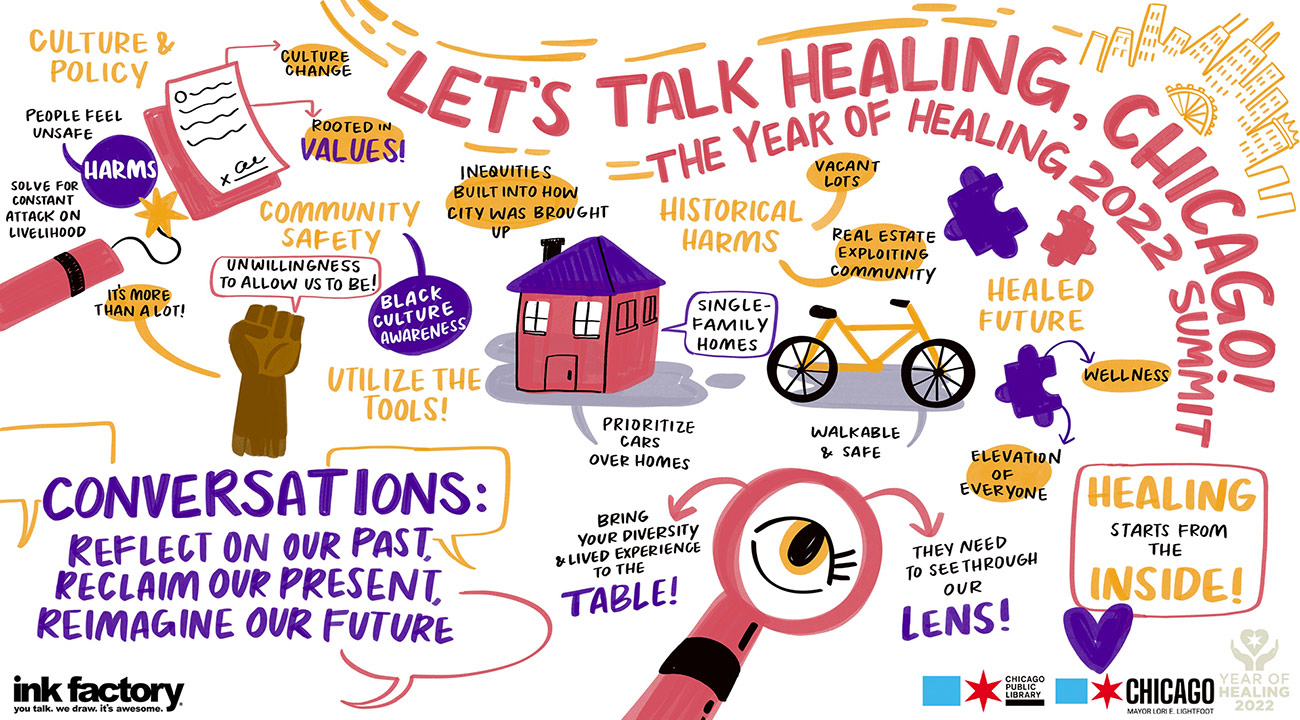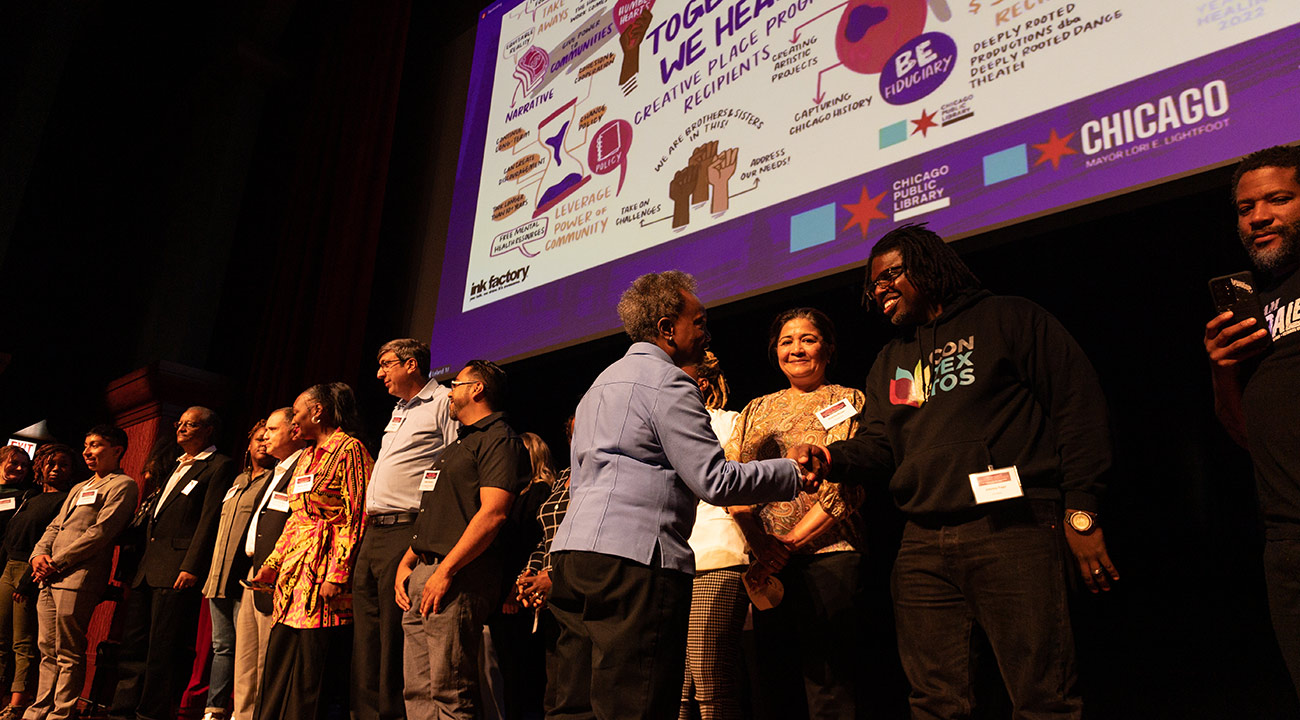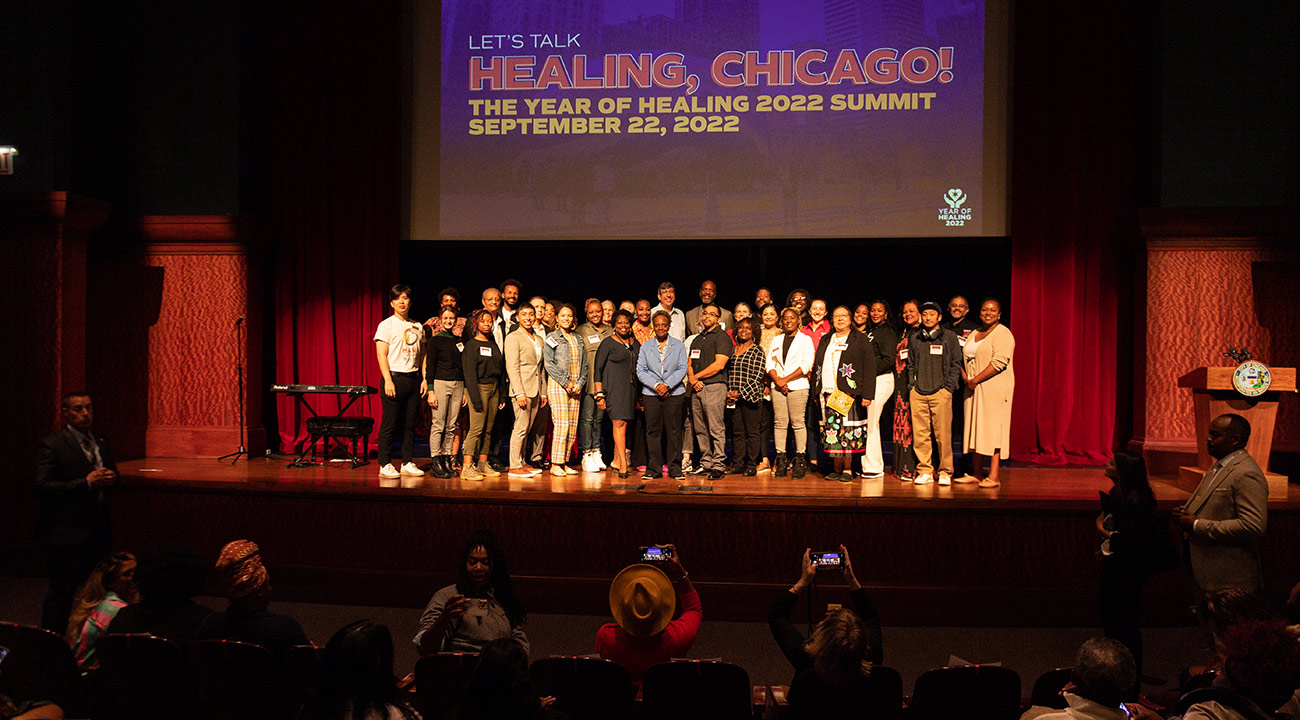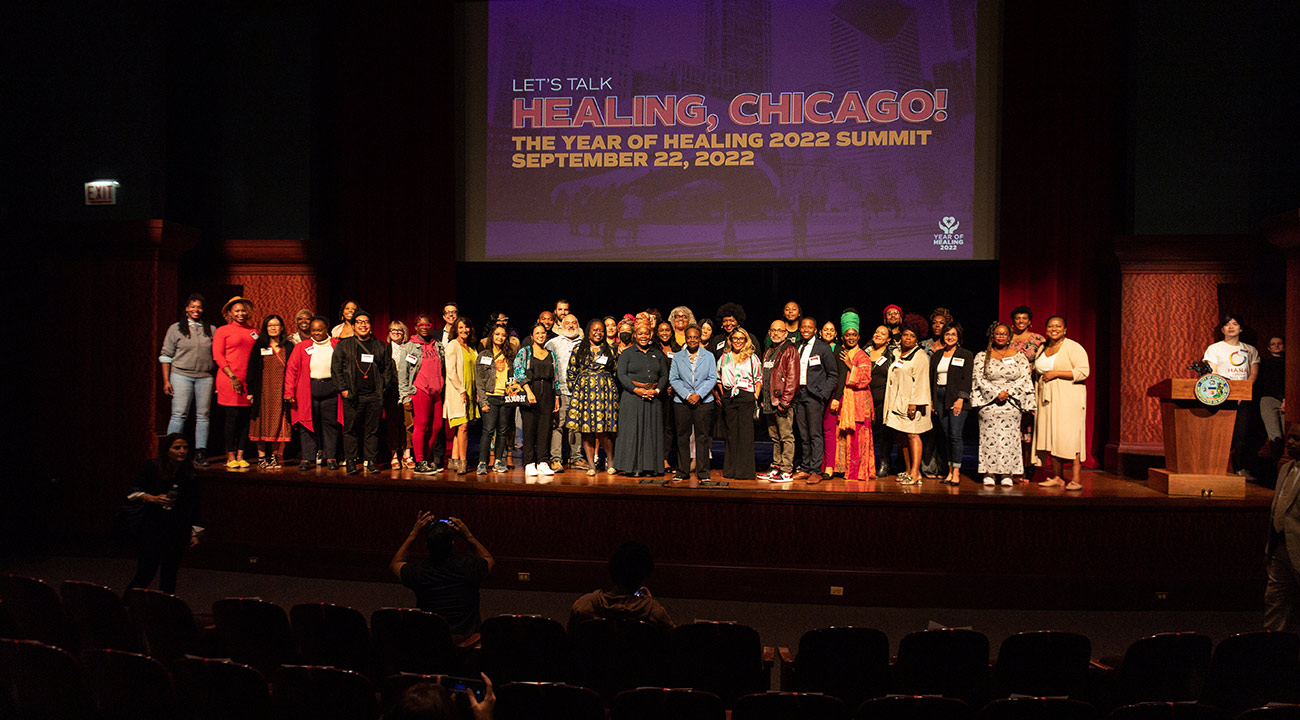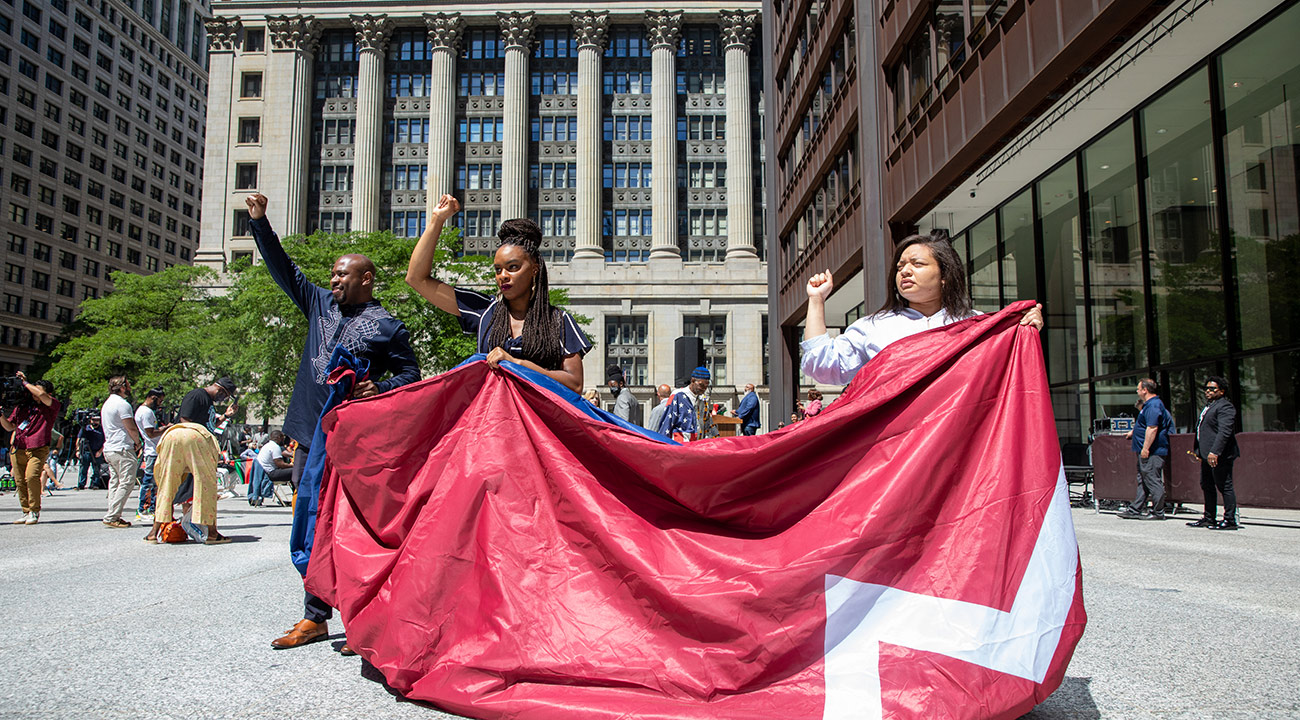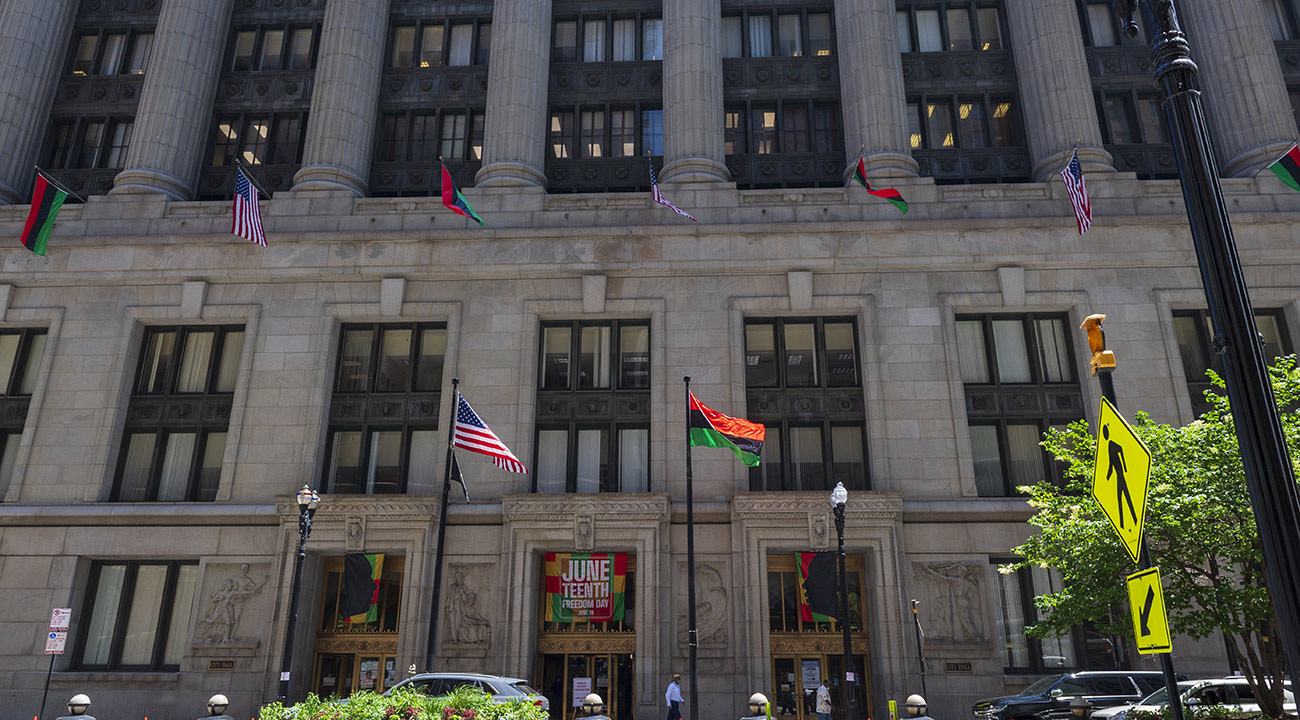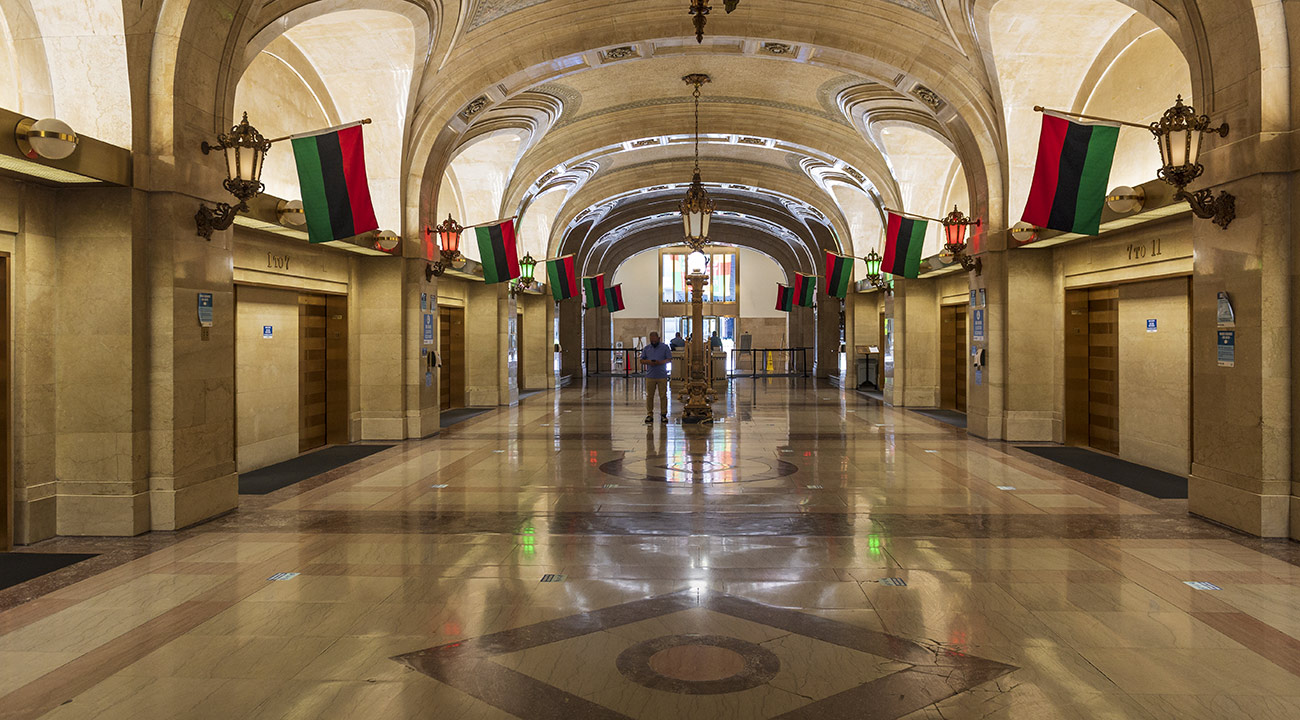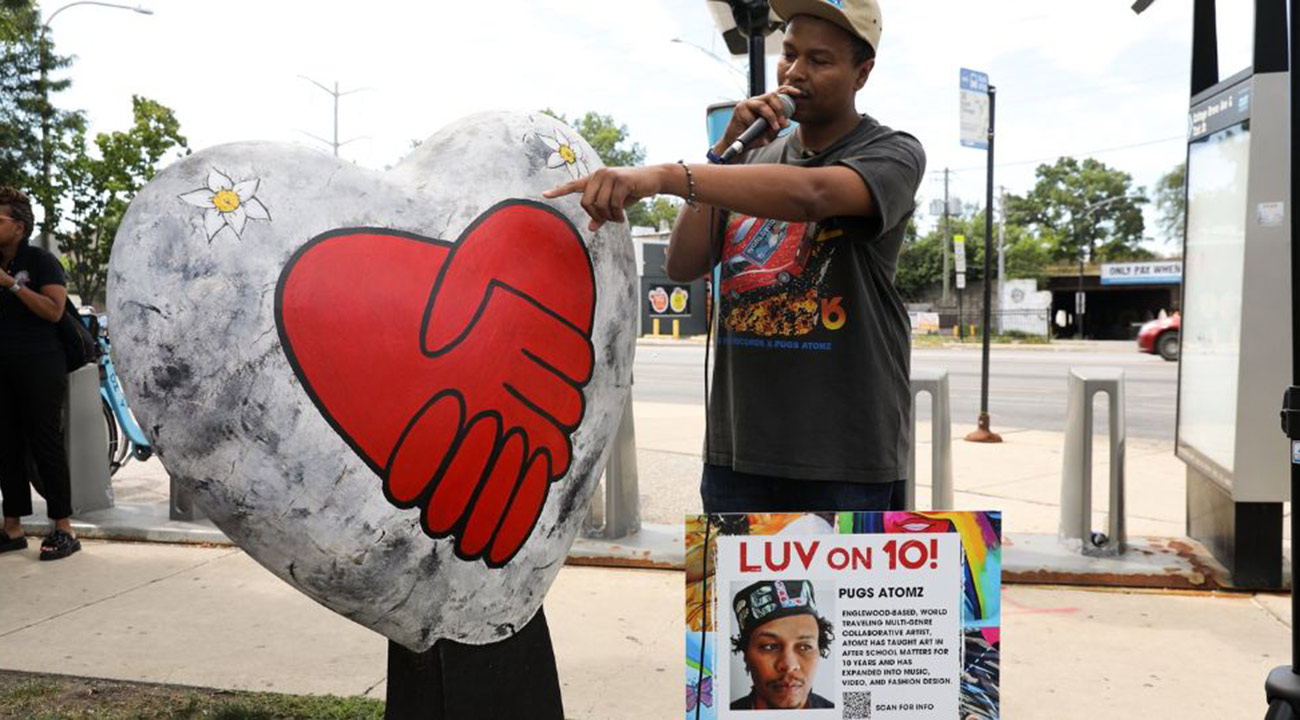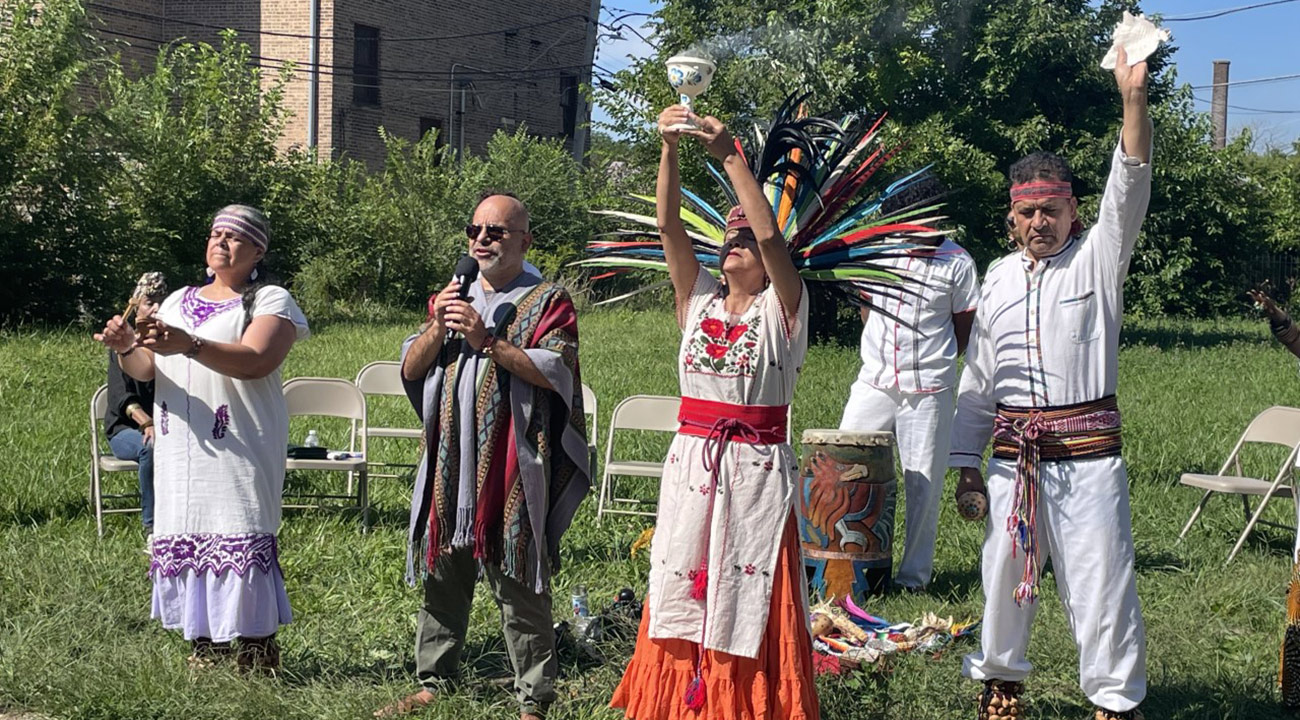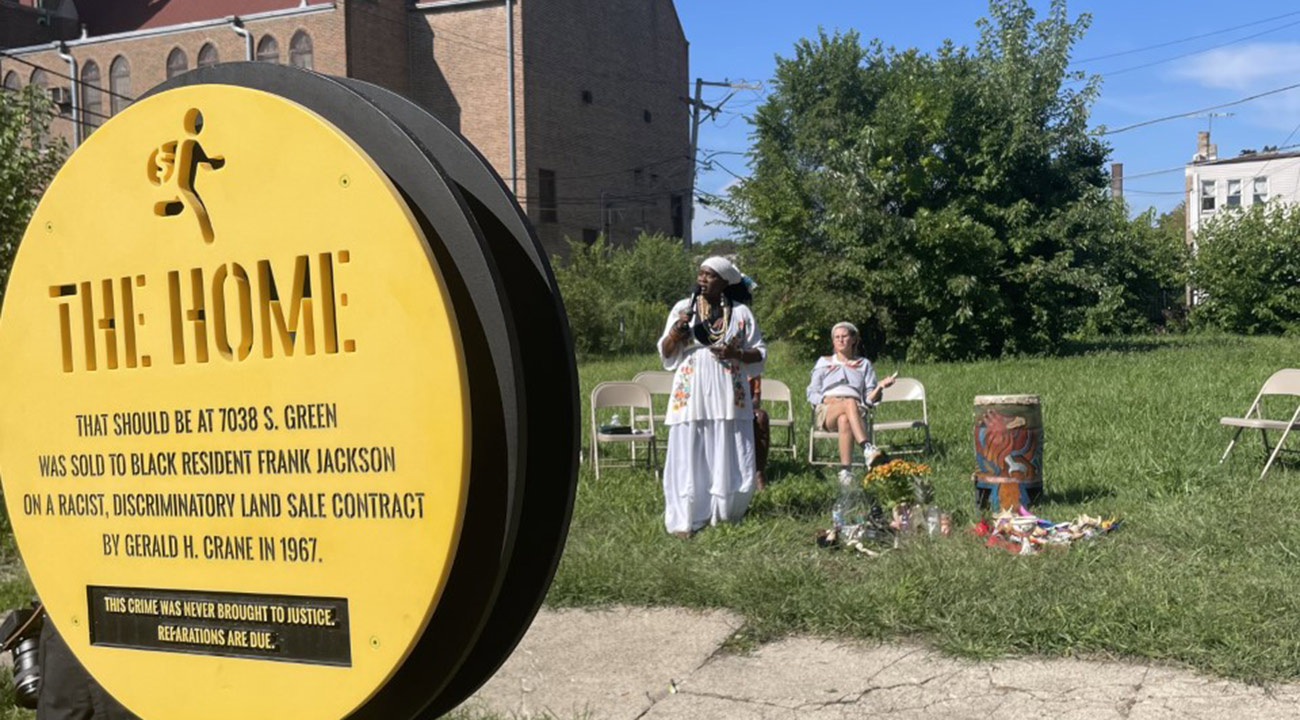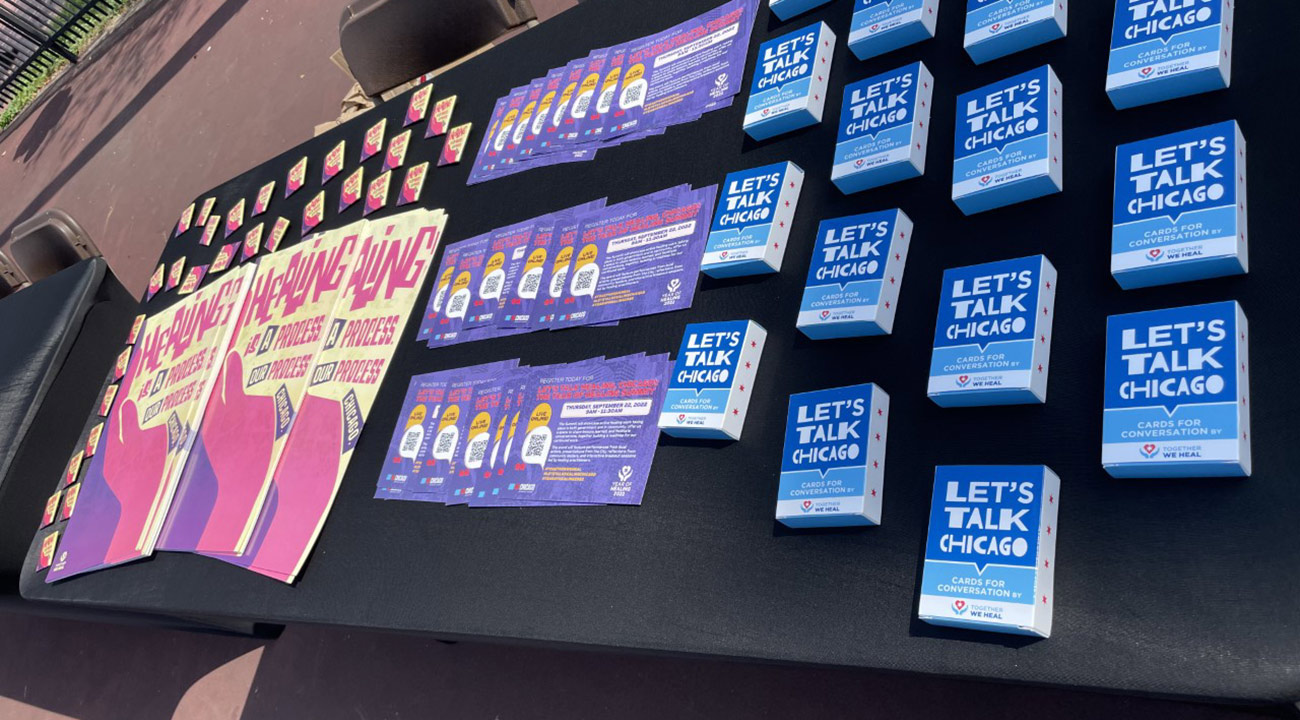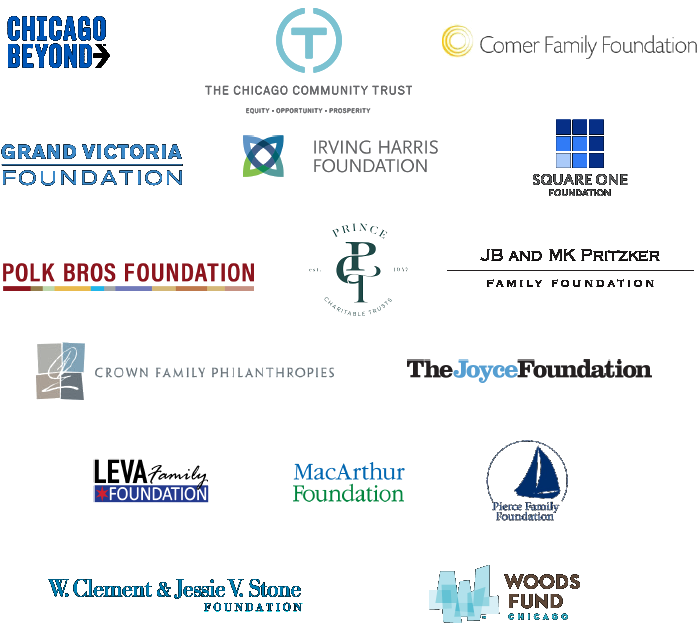Community Activations
Year of Healing Summit
On September 22, 2022, the Office of Equity and Racial Justice (OERJ) hosted a full-day Year of Healing Summit entitled “Let’s Talk Healing Chicago” at the Harold Washington Library Center. The Summit was a lively and reflective exploration of the City of Chicago’s healing work. It showcased active healing work taking place in both government and in the community, offered us a space to share lessons learned, and provided a way to facilitate conversations to build a roadmap for our continued work.
The morning included a report out from the City of Chicago— including presentations from Chief Equity Officer Candace Moore, highlights of policy initiatives that have used the Together We Heal framework and announcements by Mayor Lightfoot and the Department of Cultural Affairs and Special Events (DCASE) Commissioner Erin Harkey of the grantees from our $5M Creative Place Program. The afternoon featured community-led healing workshops from different modalities, from sound healing to circle-keeping to data & research and more.
Juneteenth Dialogues
In 2021, the Office of Equity and Racial Justice (OERJ) partnered with the Chicago Juneteenth Planning Coalition (CJPC) to host the City of Chicago’s first official Juneteenth flag-raising ceremony, where Mayor Lightfoot announced that the City of Chicago would move to recognize Juneteenth as a City holiday. 2022 marked the first official city observation and one of the biggest citywide celebrations of the holiday. Leading up to Juneteenth, OERJ and numerous partner organizations engaged in a series of events and conversations to ensure that the commemoration of the day was not just commercialized but remained a day of healing and reflection. Click ovals below for more information.
[popup_trigger id=”1509″ tag=”Click Here”]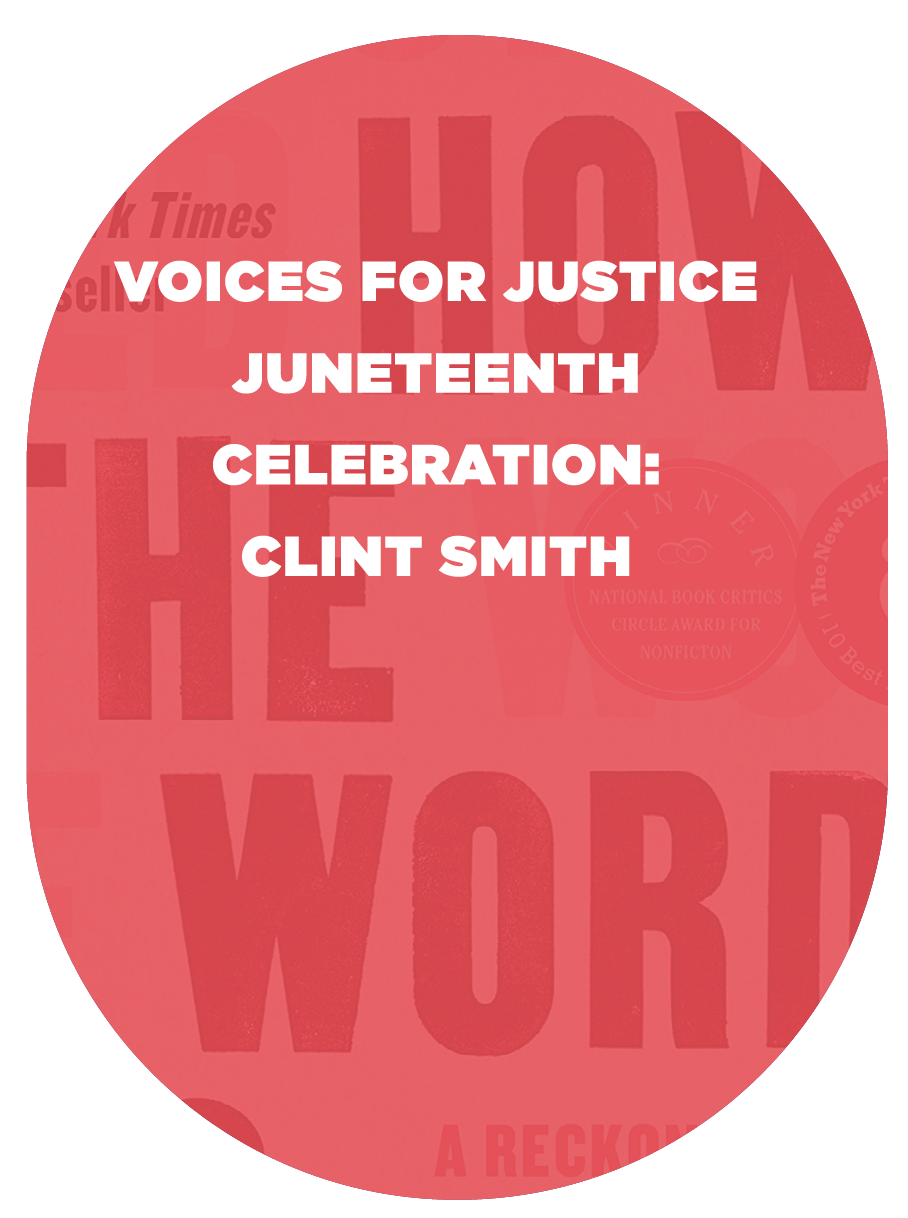 [/popup_trigger]
[/popup_trigger]
[popup_trigger id=”1506″ tag=”Click Here”]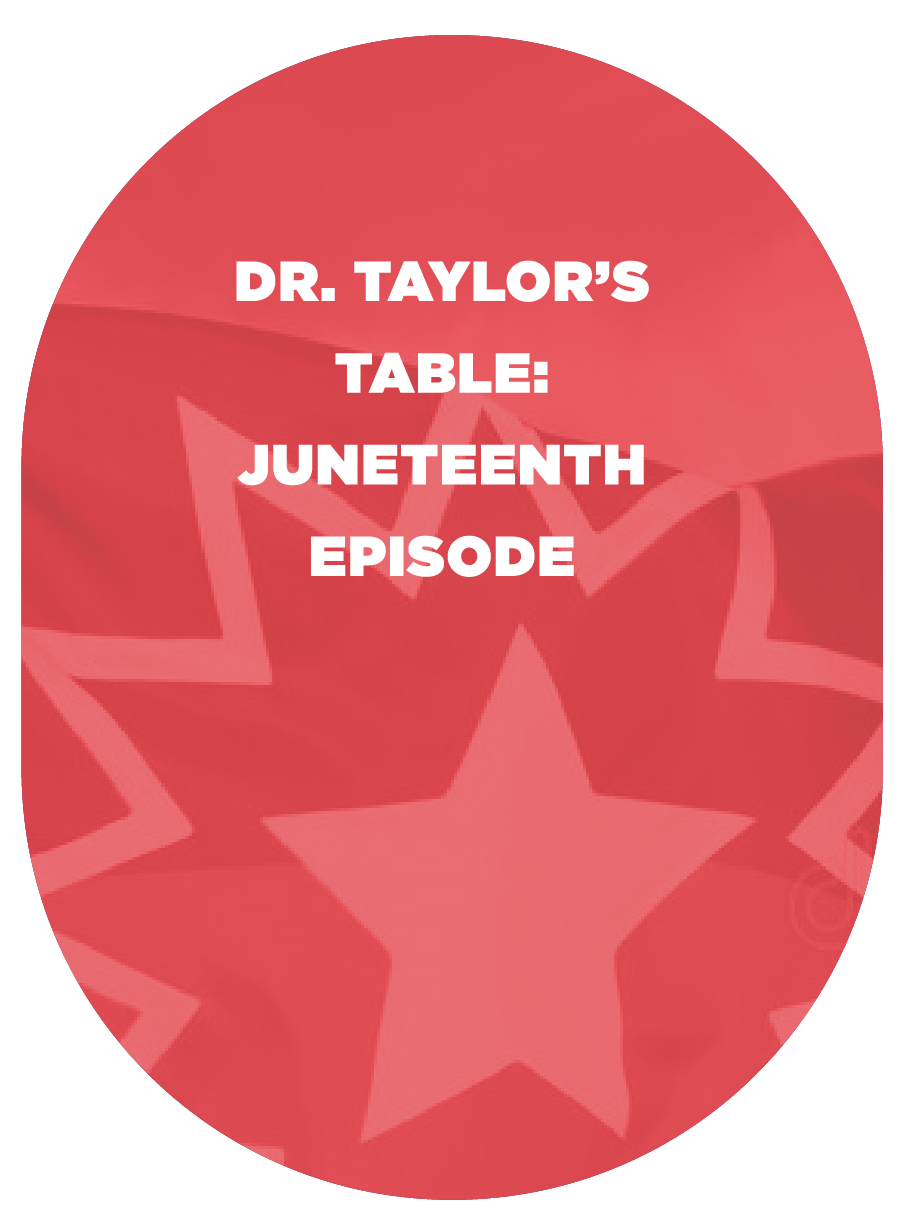 [/popup_trigger]
[/popup_trigger]
[popup_trigger id=”1519″ tag=”Click Here”] [/popup_trigger]
[/popup_trigger]
[popup_trigger id=”1523″ tag=”Click Here”]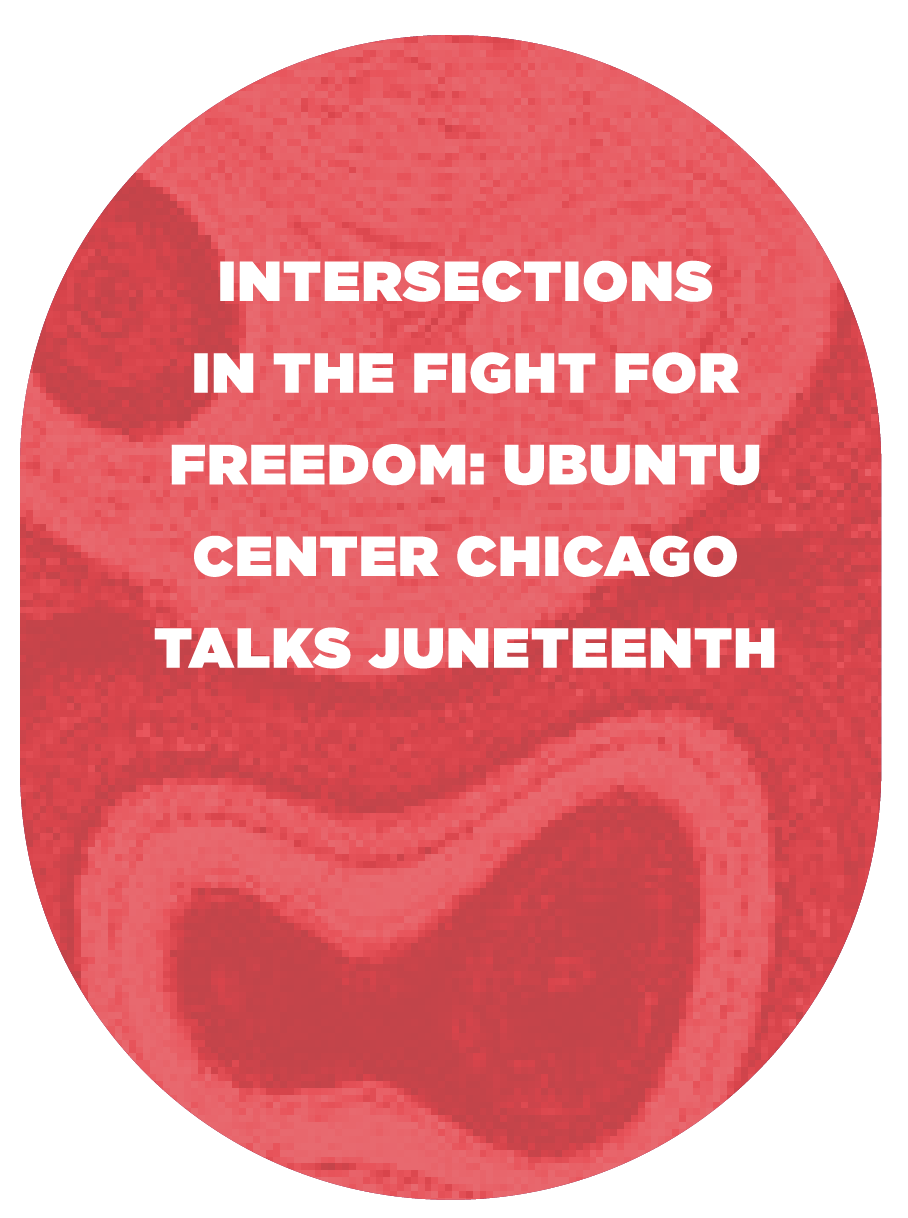 [/popup_trigger]
[/popup_trigger]
Summer Conversations
Throughout the summer, as part of the Year of Healing, the Office of Equity and Racial Justice (OERJ) was intentional about engaging in dialogue with partners to explore the value of the healing framework to community conversations. Click ovals below for more information.
[popup_trigger id=”1668″ tag=”Click Here”]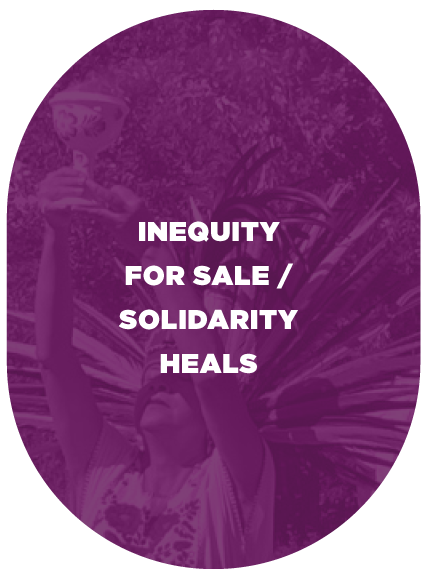 [/popup_trigger]
[/popup_trigger]
[popup_trigger id=”1672″ tag=”Click Here”]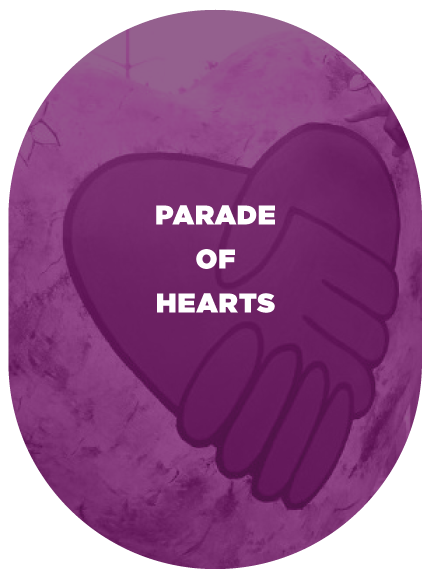 [/popup_trigger]
[/popup_trigger]
[popup_trigger id=”1674″ tag=”Click Here”]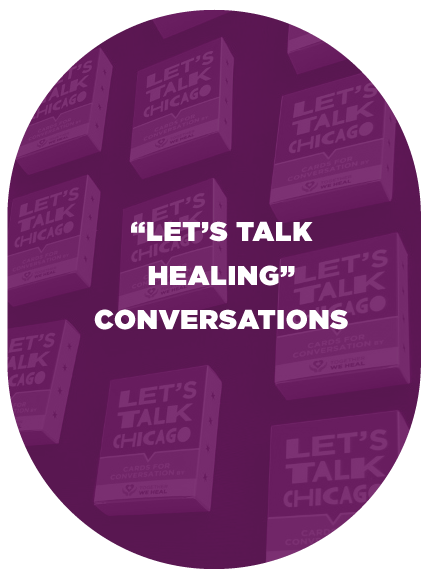 [/popup_trigger]
[/popup_trigger]
A primary goal of the Year of Healing was to explore the practice of healing through culture change work and policy change work. Throughout the community engagements, policy development, resource investments, and other work we’ve experienced throughout the Year of Healing, some key learnings and lessons surfaced.
Reflect on Our Past
Acknowledge history by educating and engaging about past/present racial injustices and structures of racial inequality.
Guiding Questions
- What happened?
- Why did it happen? What is the root cause/origin?
- Who is responsible/accountable?
- Who has benefitted and how?
- Who was burdened and how?
- What history has been erased?
What can you do in your work to “Reflect on our Past”?
- Set up a community table to build and share knowledge of historical issues impacting the work (e.g., advisory councils, focus groups, community forums, story circles, walking tours, book clubs, etc.).
- Use data and narratives to examine how systemic and structural racism has shaped historical and current outcomes/events.
- Create a statement that acknowledges the role your institution has played in creating harm.
- Create learning opportunities in the office for staff to develop a common understanding of the history of issues they work on and the communities/neighborhoods they serve.
- Empower your network, staff, or community to share stories in ways that others can engage and learn from.
What other ways can you “Reflect on our Past” in your work?
Reclaim our Present
Shift power by identifying lessons learned of the past to inform new values and norms that shift power.
Guiding Questions
What values and principles do we need to focus on?
- What did we learn in the past that we do not want to recreate?
- Can we create new principles of engagement that are intentional about the values we want to move forward?
How can we share power and decision-making authority to build equity?
- What does it mean to build a shared agreement about how we want to move forward?
- How do you build capacity?
- What new tools need to be created?
- How are you going to build consensus with community?
What knowledge and skills do we need to build up to ensure that we are able to effectively lead new strategies aimed at advancing equity?
- How can train and provide resources to government and community stakeholders?
What can you do in your work to “Reclaim our Present”?
- Co-create new values and commitments that embrace equity with populations who have been impacted and/or harmed.
- Create opportunities for knowledge-building, skill-building, & community-building.
- Empower community tables to be partners in creating and driving solutions to past harms.
- Support the growth and development of emerging leadership, including by creating new leadership opportunities.
- Leverage, highlight, and celebrate existing community assets.
- Provide resources and training where needed to support community and department staff.
What other ways can you “Reclaim our Present” in your work?
Reimagine our Future
Embrace accountability by visioning a more inclusive future state and designing policies to produce and sustain more equitable outcomes.
Guiding Questions
What values and principles do we need to focus on?
- What policies, programs, or practices need to be created? What needs to be dismantled and replaced?
- What are some bold, imaginative ideas for creating a new way of doing business?
- What structures of accountability need to be in place to sustain the change?
- How will we measure success?
- How can we build a continuous feedback loop? Are we prepared to iterate along the way?
What can you do in your work to “Reimagine our Future”?
- Create visioning opportunities to identify desired outcomes with communities most impacted.
- Design policies, programs, and practices that aim to rectify past harms and prevent reoccurrence.
- Be clear about what success would look like. Ensure that you understand the community’s perspective vs. your departments.
- Publish data and/or engage with the community to encourage accountability measures.
- Set up reoccurring check-ins with communities most impacted to evaluate success and determine if changes/alterations are needed.
What other ways can you “Reimagine our Future” in your work?
Mayor Lori E. Lightfoot
- Candace Moore, Chief Equity Officer, Office of Equity & Racial Justice
- Lauren Burdette, Deputy Chief Equity Officer, Office of Equity & Racial Justice
- Nneka Onwuzurike, Chicago Recovery Plan Program Manager, Office of Equity & Racial Justice
- Lyric Griffin, Equity Project Manager, Office of Equity & Racial Justice
- Janell Nelson, JNJ Creative
- Eric Halloran, Edesign Chicago
- Dee Atkins, Thresholds
- Laurence Bolotin, Loyola University
- Niketa Brar, Chicago United for Equity
- Arianna Cisneros, W.K Kellogg Foundation
- Victor Dickson, Safer Foundation
- Glenance Green, Black Researchers Collaborative
- Kim Jay, Sinai Urban Health Institute
- Bela Mote, Carole Robertson Center for Learning
-
Esther Nieves, Independent Consultant
-
Grace Pai, Asian Americans Advancing Justice
-
José Rico, Truth, Racial Healing and Transformation/ United Way Metro
-
James Rudyk, Northwest Side Housing Center
-
Shehara Waas, Northwestern University’s Alliance on Research
-
Sharif Walker, Bethel New Life

